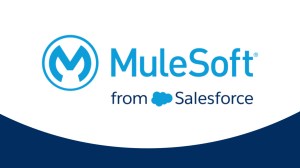Dreamforce 2019: Decathlon showcases brick-and-mortar innovation
To kick off Dreamforce 2019, more than 50 international reporters made their way to Decathlon’s Market Street location to learn how the sports retailer is embracing digital capabilities to create fresh experiences in their brick-and-mortar stores. Decathlon operates over 1,600 sporting goods stores across the globe and entered the US market this year, opening three stores in the San Francisco Bay area. MuleSoft is playing an important role in Decathlon’s expanding business by enabling the company to build a foundation of reusable APIs, making it easier than ever to plug in new services and drive seamless customer experiences at scale.
IoT devices create interactive experiences, increase employee productivity
One of the first things you’ll notice about this Decathlon location is that there’s no cash register or main checkout area in the store. Instead, mobile checkout stations appear as physical tables on wheels, where employees can scan each piece of merchandise with their mobile device and customers can pay by card or digitally. A tablet and a series of lockers at the front of the store allows customers to easily buy items online and pick them up onsite.
Each piece of merchandise is marked with a Radio Frequency Identification (RFID) tag, enabling an even faster way to pay: If a customer has a full basket of merchandise, they can slide the basket into a compartment beneath the mobile checkout station. Under the table, an RFID reader scans the entire basket in one go. Ashley Benson, senior product manager at Decathlon USA, said that this approach makes the checkout process about two times faster.
The star of the day was Tally, an inventory-checking robot on a swivel base with a set of dark, blinking eyes. Tally can scan every product in the store in two hours, reading the RFID tags on each piece of merchandise and alerting Decathlon staff members of out-of-place items and items that need to be restocked. Tally frees up time for store assistants, allowing them to devote their energy towards what they do best — advising customers.
Reusable APIs as the foundation for digital transformation
Tony Leon, CIO and CTO of Decathlon USA, joined reporters onsite to share an overview of Decathlon’s digital transformation strategy. By using APIs to connect systems and processes — such as point of sale software, order management, and inventory data — in an application network, the company can easily access and reuse applications to build connected experiences.
Decathlon began by designing a cloud-based order management platform with reusable APIs — including product prices, order reconciliation, inventory, and fulfillment. With its modernized order management foundation, Decathlon ecommerce orders are synced up with real-time inventory data so that customers experience a seamless checkout process. This order management platform underpins their mobile checkout system and Tally inventory robots.
Using Anypoint Platform, Decathlon built and deployed 10 more reusable APIs, abstracting away from legacy systems to make hard-to-reach data more accessible. New projects continue to add more “nodes” to the application network, enabling more opportunities for reuse by stakeholders across the business to build connected customer experiences, increase operational efficiencies, and create new products and services. With a decoupled architecture, Decathlon will be able to add technologies — like a new shipping solution — in one-third of the time.








